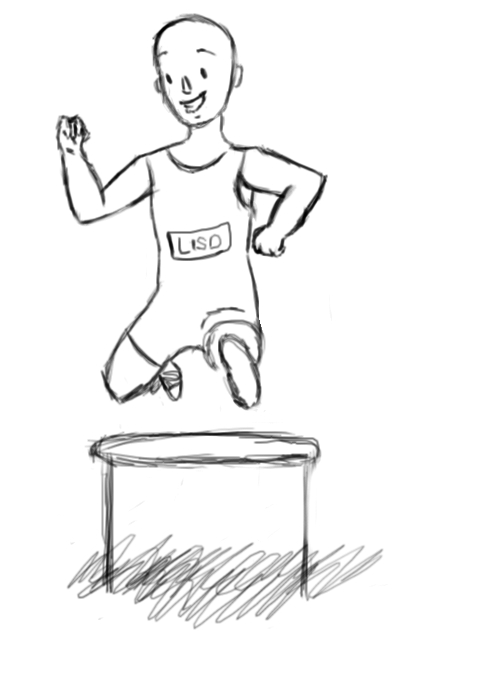Across the country, more students are graduating high school, but this does not mean they are more prepared for college. In LISD, English courses include less required reading, writing and research due to more “flexible” curriculum.
Students in regular English courses are being cheated out of the education they deserve. AP students vastly outpace them in course rigor, and on-level kids may not be prepared for college under current curriculum. Parents and students should demand rigorous courses that prepare students for college and life after high school.
The Rift
One of the biggest consequences of the watered down curriculum is it broadens the rift between AP and regular students, which hurts on-level college bound kids. Top students are continuing to excel, but the bottom is continuing to decline. We cannot accept that a growing number of kids are not where they need to be.
As AP students continue to read multiple classic novels and write longform essays spanning a number of topics, regular students do not. Students who read passages instead of novels and write a single paragraph instead of full essays miss out on important themes, cultural eras and analytical thinking skills.
Of course AP classes should be faster paced and have more college-level assignments—no one is arguing that—but regular students should not be completely left in the dust because of their class
choice. To prepare for college rigor and difficult assignments, all students should be exposed to challenging material.
Regular students may want easy assignments now, but it is important that we challenge all students.
College Prep District
For quite a while, LISD has been one of the more competitive districts in the country—ranked in the top four percent of all U.S. districts. But due to the recent changes in curriculum, our district’s standing as one of the best may fall.
In 2009, English students were required to read multiple core novels and shorter texts, write formal essay drafts and revise them. Today, English classes no longer have any required reading or writing.
To prepare students for college, we must demand rigorous curriculum. In our ever developing world, it is becoming harder and harder to get by without a college education—let alone basic high school skills. It is not enough to read a couple passages or a movie review and write a reflection. We must train our students to be efficient communicators and thinkers.
Even students majoring in STEM will need English skills. As a society, we must stop pretending that reading novels and writing essays only matters to English majors. After graduation, students will need a working understanding of culture and communication. These vital skills are taught through classic literature and critical writing.
Not everyone goes to college
True, not everyone who graduates high school goes on to college. Some prefer to work in industries such as cosmetology or mechanics, and others choose to enlist in the military or simply take a gap year. That does not mean, however, they should not be challenged with classic literature.
At face value, the themes in “The Crucible” or “The Grapes of Wrath” don’t seem important outside of school. But, as Americans, these are our shared stories—our history. We understand where we came from and who we are through these masterpieces. To allow teachers to not teach them is to ignore our heritage.
Furthermore, writing persuasive longform essays should not be an activity that a teacher can choose whether or not to do. Every student will grow up one day and have to sell their self to a college, employer or spouse.
Along the same line, we should challenge students to deeply and freely research and present topics they are interested in. Research helps to develop valuable life skills, providing students with the needed perseverance to tackle bigger projects during college or careers.
High school is the time to lay the first block for productive college students, employees and citizens alike. We need to challenge our students, but the problem is that valuable English class time is taken away by SSR, Ted Talks, podcasts and political debates. Individually, these activities are not bad, but they should be supplemental, not foundational.
Reading, Writing and Research
In district curriculum, there should be at least some requirement for deeper work in each of these categories. Merely suggesting what teachers should do is not enough. Kids should not be entertained because we value student choice over the education that everyone deserves. Rarely in life will we be allowed to choose everything we want to do. Life is struggle. Requiring students to adapt to and interact with difficult coursework teaches them to work through adversity.
We must denounce the idea that only AP kids be challenged. Allowing a good portion of students to leave high school without critical English skills is unacceptable. Advanced Placement does not mean advanced opportunity.
LISD must buckle down and challenge all of its students to become productive, hardworking graduates, employees and citizens alike. The job of educators is to leave all students with a lasting positive impact. For if one of us fails because not everyone was pushed to be their best self, then we all fail together.







